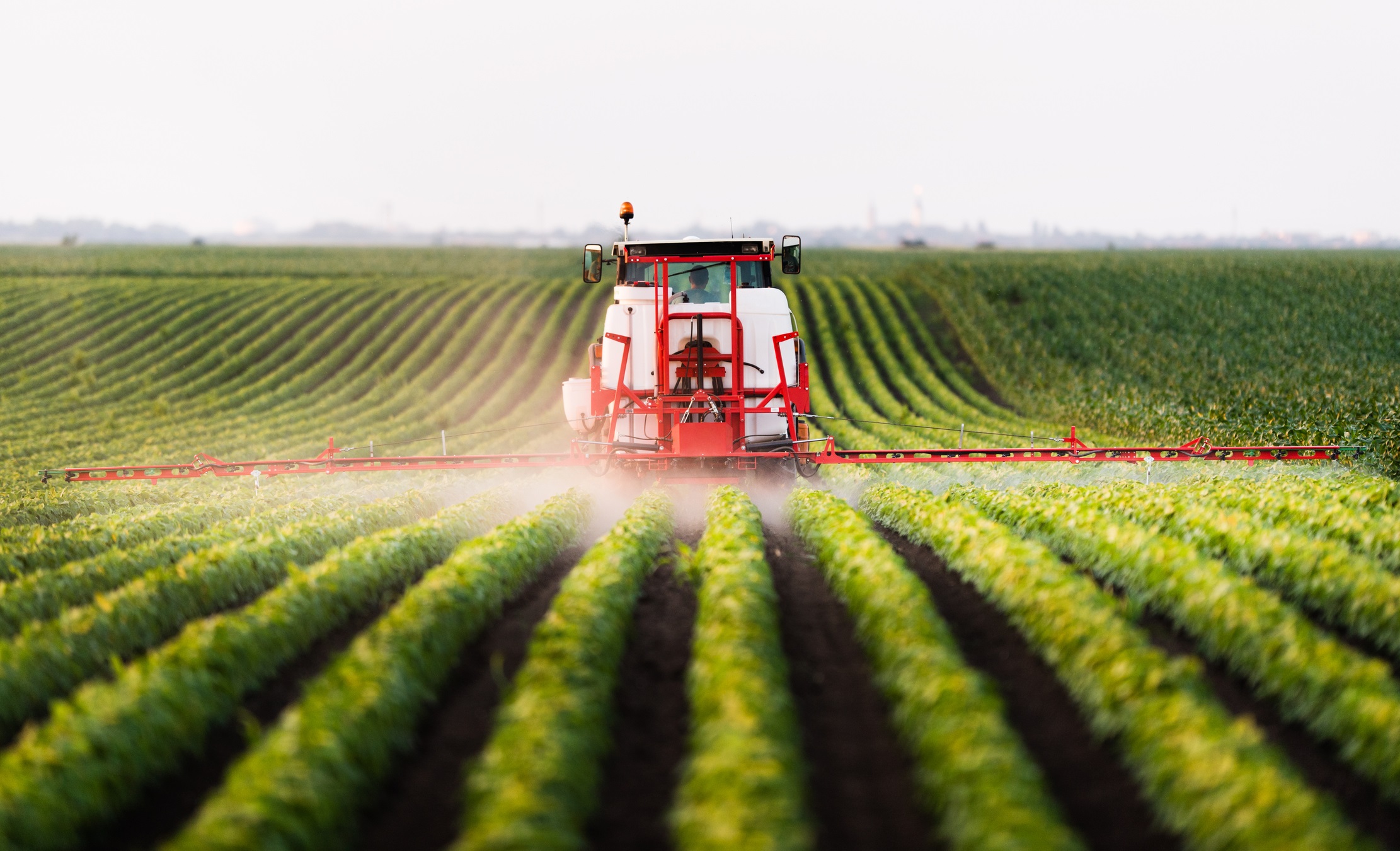Federal court holds Monsanto/Bayer’s dicamba herbicide unlawful, citing unprecedented drift damage to millions of acres
A federal court recently overturned the U.S. Environmental Protection Agency’s approval of dicamba herbicide, which is made by pesticide giants Bayer, BASF and Corteva Agrisciences. The ruling makes it illegal for farmers to continue using the weedkiller.
The U.S. Court of Appeals for the Ninth Circuit’s 56-page opinion held that the EPA’s 2018 registration of that pesticide and related ones to be unlawful, and disallowed it. The court found that the EPA “substantially understated the risks” of dicamba herbicides, which are known to volatize and drift causing damage to other crops.
“Massive win for farmers and the environment”
The ruling means that farmers will have to immediately cease the use of dicamba on millions of acres of crops across the Midwest and South. About 60 million acres of crops will be affected. Over 25 million pounds of dicamba was set to be sprayed again this summer using the now-unlawful pesticides.
“Today’s decision is a massive win for farmers and the environment,” said George Kimbrell of the Center for Food Safety, lead counsel in the case. “It is good to be reminded that corporations like Monsanto and the Trump Administration cannot escape the rule of law, particularly at a time of crisis like this. Their day of reckoning has arrived.”
The case involved three formulations of dicamba—Bayer’s XtendiMax, Corteva’s FeXapan, and BASF’s Engenia—that EPA first registered for the 2017 season for “new uses” on Monsanto’s genetically-engineered, dicamba-resistant soybeans and cotton. Though introduced in the 1960s, dicamba had been little-used due to its propensity to volatilize and drift, damaging neighbors’ crops.
In approving the new uses, EPA defied numerous warnings that the pesticide would cause far more widespread drift damage than ever before, relying entirely on dubious industry studies and complex usage restrictions to supposedly “eliminate” any damage to crops from drift.
Dicamba caused “enormous and unprecedented damage”
That is exactly what happened. From 2017 to 2019 farmers reported thousands of dicamba drift episodes causing damage to millions of acres of soybeans as well as vegetables, fruit trees, gardens, and residential trees.
In ruling the herbicide approval unlawful, the opinion cited “enormous and unprecedented damage” caused by dicamba in the last few years, damage that has “torn apart the social fabric of many farming communities.” A dispute over dicamba drift even led one farmer to murder another. The court singled out this tragic even in its ruling.
In February, a jury awarded a Missouri peach farmer $265 million in damages to be paid by Bayer and BASF for dicamba damage to his property.
“For the thousands of farmers whose fields were damaged or destroyed by dicamba drift despite our warnings, the National Family Farm Coalition is pleased with today’s ruling,” said National Family Farm Coalition president Jim Goodman, who is also a retired dairy farmer.
University weed experts also believed that the dicamba products had not been thoroughly evaluated before they were sold commercially, according to Aaron Hager, a scientist at the University of Illinois. The judge’s comments in the ruling, Hager said, “closely reflects the concerns many of us in the academic world had.”
“Justice has finally prevailed”
The court’s ruling was far-reaching, touching on risks that EPA entirely ignored and that are seldom raised in cases on pesticide law. For instance, the judges ruled that EPA had ignored the substantial costs imposed on soybean farmers who purchased Monsanto’s dicamba-resistant seed solely to preserve their crops from dicamba drift damage—an “anti-competitive economic effect” of the registrations. One farmer had described this effect as “tantamount to extortion.”
“This is a massive victory that will protect people and wildlife from uses of a highly toxic pesticide that never should’ve been approved by the EPA,” said Lori Ann Burd, director of the Center for Biological Diversity’s environmental health program. “The fact that the Trump EPA approved these uses of dicamba despite its well-documented record of damaging millions of acres of farmland, tree groves and gardens highlights how tightly the pesticide industry controls EPA’s pesticide-approval process. But this ruling is a powerful rejection of their lawlessness.”
Also stunning was the court’s acknowledgement that these uses of dicamba engendered strife among those spraying dicamba and those suffering drift damage. The judges noted that EPA had ignored this outcome, despite the fact that federal pesticide law requires an accounting of the “social costs” of a pesticide’s use as well as health and environmental harms.
“Justice has finally prevailed,” said Marcia Ishii-Eiteman, senior scientist at Pesticide Action Network. “EPA, Bayer and Corteva knew all along that the highly drift-prone herbicide, dicamba, would cause grave harm to farmers, their livelihoods, crops, surrounding rural communities and landscapes. Unfortunately, we have already seen three seasons of devastation that could have been avoided had EPA done its job.”
Bayer said it has paused the sale, distribution, and use of XtendiMax® dicamba herbicide “pending further guidance from the U.S. EPA.” The company released a statement, saying: “We strongly disagree with the ruling and are assessing our options. If the ruling stands, we will work quickly to minimize any impact on our customers this season. Our top priority is making sure our customers have the support they need to have a successful season.”
Sources: Center for Food Safety, US Right to Know, Midwest Center for Investigative Reporting
To view source articles, visit:





